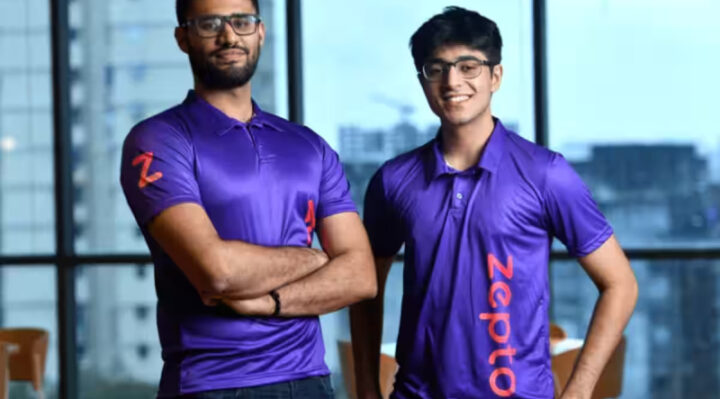
The online grocery business Zepto announced on Friday that it had raised $200 million in a Series E round of fundraising at a valuation of $1.4 billion, making it India’s first unicorn of 2023 and raising hopes in the startup industry that has been suffering from a protracted funding winter.
StepStone Group, a leading US private market investor that also made its first direct investment in an Indian business, oversaw the fundraising effort. According to those with knowledge of the situation, the Group invested $75 million to start the round. A new investor is Goodwater Capital, a consumer-focused venture capital firm based in California. Existing investors Lachy Groom, Glade Brook Capital, and Nexus Venture Partners participated in the round as well.
Aadit Palicha and Kaivalya Vohra, two Stanford University dropouts who founded Zepto in 2021, are also thinking about going public in the next two to three years. Currently, it operates more than 200 underground stores in seven cities that deliver everything from chips to diapers, notebooks, cooking oil, and cigarettes. The US technology startup accelerator Y Combinator’s Continuity Fund led a $200 million Series D fundraising round for Zepto in 2022, valuing the company at $900 million.
Following the pandemic outbreak, quick commerce businesses emerged, with platforms like Zomato’s Blinkit and Swiggy’s Instamart providing home delivery of goods like shampoos, soaps, veggies, and tea, which customers traditionally purchase from neighborhood shops. The strategy has raised concerns due to its large monetary outlay and delivery of commodities that are readily available in nearby markets.
“We’ll work much harder to achieve profitability. According to Palicha, who is also the CEO of Zepto, “the goal is to get to Ebitda positive in the next 12 to 15 months and do it at a scale of well over a billion dollars in sales annually.”
In addition to lowering the time it takes for each of these stores to become profitable, Palicha stated that Zepto expects to add 40% more dark stores during the upcoming 12 months. “Most of our dark stores have entirely positive Ebitda results… The entire firm is expected to be Ebitda-positive in the upcoming 12 to 15 months if we continue on the track we were on, with roughly 150 dark stores that are now profitable and the majority of our dark stores currently generating cash. We have really increased sales by 300% year over year, while also reducing burn and turning the majority of our outlets profitable, the executive claimed.
According to Zepto, it can deliver more than 6,000 grocery items in only 10 minutes using a network of distribution hubs or “dark stores.” Typically, each order costs between $400 and 450.
The money raised by Zepto is a help for domestic firms, such as other quick delivery platforms that are struggling with a severe liquidity shortage. For instance, Dunzo, a competitor of Zepto, postponed paying employee salary, according to a July story.



